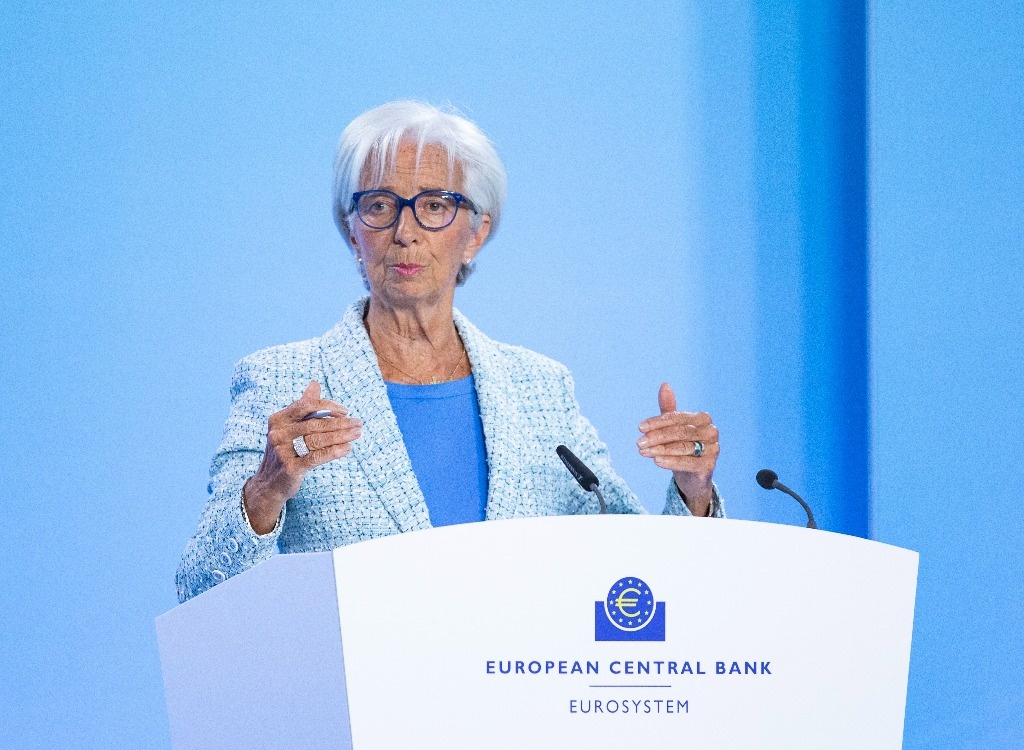Frankfurt. For the primary time since 2019, the European Central Financial institution (ECB) reduce its rates of interest this Thursday, though it elevated its inflation projections and warned that the approaching months might be “hectic” and with little visibility by way of worth will increase.
The Frankfurt-based establishment decreased its deposit fee by 1 / 4 of a share level to three.75 p.c.
The ECB reduce charges for the primary time in 5 years on Thursday, becoming a member of the same transfer this week by the central banks of Canada, Sweden and Switzerland in starting the withdrawal of a few of the steepest fee hikes used to regulate a post-pandemic rebound in inflation.
In mid-2022, the ECB started a cycle of unprecedented fee hikes within the euro zone to include the uncontrolled rise in costs, notably in vitality and meals. A coverage that managed to slowly scale back inflation till it was nearer to the official objective of two p.c.
Thursday’s reduce will present a recent enhance to the beleaguered eurozone financial system, made up of 20 of the 27 European Union international locations.
The most recent inflation and progress information for euro international locations is healthier than anticipated, though within the replace printed this Thursday, inflation is predicted to be 2.5 this 12 months, as a substitute of two.3 p.c beforehand forecast, and for 2025 the forecast has elevated from 2 to 2.2 p.c.
The ECB acknowledged an enchancment in inflation, however warned in a press release that “home inflationary pressures stay intense attributable to excessive wage progress and inflation is prone to stay above goal nicely into subsequent 12 months.”
Uncertainty
That’s the reason it’s unlikely that this Thursday’s fee reduce will inaugurate a cycle of financial easing.
The president of the ECB, Christine Lagarde, assured that the pace and period of future cuts are nonetheless “very unsure.”
“It’s an ongoing course of (…), what’s unsure is the pace at which we’ll go and the time it is going to take,” Lagarde declared at a press convention. He added that “the following few months will proceed to be hectic,” in a tacit invitation to warning.
In accordance with economist Carsten Brzeski of ING, “stagnant inflation will restrict the scope for added fee cuts.”
Regardless of the slowdown in inflation, which on the finish of 2022 reached ten p.c, compressing costs till they attain the ECB’s objective is proving troublesome.
Inflation within the 20 euro international locations rose sooner than anticipated in Could, as much as 2.6 p.c yearly, in comparison with 2.4 p.c in April.
In parallel, the eurozone financial system additionally expanded sooner than anticipated within the first quarter and emerged from recession, though it continues to point out sluggish progress in comparison with the USA.
Analysts consider the probabilities of one other reduce on the subsequent ECB assembly are slim.
The ECB’s coverage differs from that of the USA Federal Reserve (Fed), which has additionally raised charges repeatedly, however for the second doesn’t foresee cuts within the coming months, following better-than-expected financial information.
The IMF mentioned the speed reduce is “acceptable” given the decline in inflation within the euro zone, however that each ECB and Fed policymakers ought to keep a data-dependent strategy.
#time #years #European #Central #Financial institution #cuts #curiosity #charges
– 2024-06-08 10:42:44
